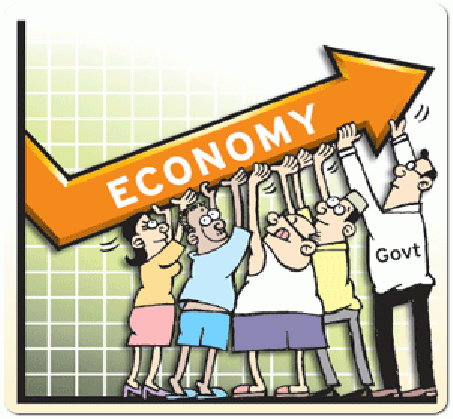Support the Rise of the National Economy, the Government Absorbs the Aspirations of Industry Actors
By: Ghiffari Ramadhani) *
The aspirations of the industrial sector and business actors turned out to get the government’s response with the issuance of government regulation number 45 of 2019, containing a super deduction tax.
The regulation issued a regulation that employers and industries involved in implementing vocational education and research and innovation activities will get a reduction in income tax bills.
The existence of these regulations is a breath of fresh air for industry players in the country, where accounting, funds spent on research and vocational education can be financed and reduce taxes by up to two – three times.
Responding to this, Finance Minister Sri Mulyani Indrawati said that the issuance of the regulation was an answer to the aspirations of industry players. Some time ago, the Ministry of Industry proposed that he provide incentives to business actors conducting research and innovation.
According to him, with the existence of the PP, the government wants to encourage the domestic industry to increase. Unmitigated, the government wants the domestic industry to compete internationally.
Companies that carry out work practice, apprenticeship and / or learning activities to develop competency-based human resources are given a reduction in income tax of at most 200 percent of the total costs incurred.
Whereas those who conduct research and development activities based on technology and innovation are given a reduction in income tax a maximum of 300 percent of the total costs incurred in a certain period of time.
Meanwhile, a 60 percent reduction in income tax is given to labor-intensive industries that invest new capital or expand businesses in certain fields.
These incentives are expected to increase the involvement of businesses in developing the quality of human resources, in training workers to suit market needs, and conducting research to improve global competitiveness. This is certainly a big opportunity for the Government of Indonesia to be able to increase the participation of the private sector in achieving economic targets, including strengthening the national industrial base which is export-oriented and medium-sized industries.
The tax incentives can also be directed towards overcoming the national industry problems that have existed, namely lack of labor competency and research development, in a more structured manner.
So that the allocation of company funds that should be paid to pay taxes, can be diverted to fund the needs of HR development in a company, the impact of which development will improve the quality of the company so that it can compete at the global level.
It is now proven that the government can accept and appreciate the aspirations and input of business people. In line with this, we certainly expect that input from other segments of society, such as in the political, social and cultural fields, can also be submitted to the government. Aspirations in the form of inputs that are conveyed constructively with rational arguments and a clear philosophical background, must be accommodated by the government for mutual benefit.
We hope that this concern can also spread to creative economic actors, this is necessary because creative industry players are quite respected at the international level. Even in some international level competitions, Indonesia also often gets first place.
On a different occasion, the former Governor of DKI Jakarta explained that there are a number of endowments that should be budgeted to provide support to encourage the development of potential and resources in the creative industry sector.
However, his side has not been able to ascertain how the mechanism is because it will be discussed again and hopefully the Indonesian Parliament can also provide the same support to him regarding the allocation of the endowment fund.
In the second period later, creative economic actors certainly hope that Jokowi can give more attention to the creative economy sector so that later the resources and welfare of the arts and creative actors can be increasingly competitive in the international arena.
Absorption of good aspirations is certainly a feature of mature democracies, because after all those who sit in parliamentary seats cannot be separated from the supportive role of the people who cast their votes in general election contests.
The absorption of aspirations is also one form of government concern for the lives of heterogeneous people.
) * The author is a socio-economic observer
